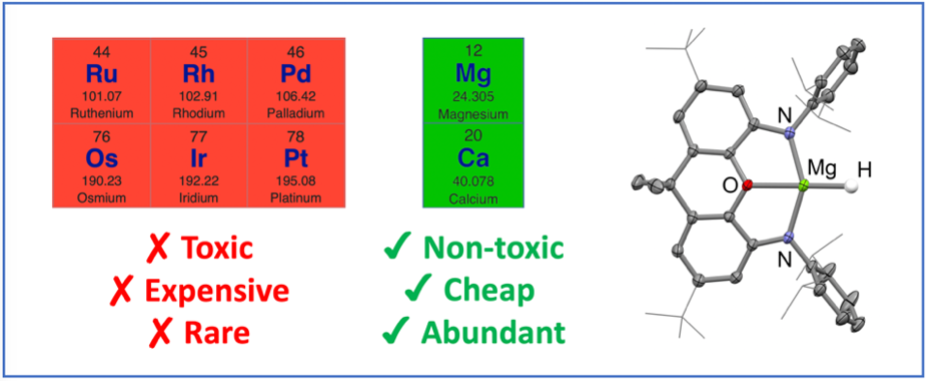Magnesium and Calcium Hydride Catalysis
The project will involve training in the use of highly reactive, air-sensitive reagents which require handling under strict anaerobic conditions, therefore training in strict air-sensitive chemistry will be given. X-ray crystallography and multinuclear NMR spectroscopy are the common characterization techniques that will be used on a daily basis.
Groups
Project status
Content navigation
About
Over 90% of our everyday chemicals derive, to some extent, from catalytic processes. The vast majority of these catalysts include the use of noble transition metals (such as platinum, palladium, rhodium etc.). These noble metals are, however, toxic expensive and rare. Current trends in sustainable chemistry are moving away from noble metals and looking for ‘greener’ alternatives. The alkaline earth metals magnesium and calcium are abundant, non-toxic, environmentally benign and extremely cheap, making them ideal candidates for ‘green’ catalysis.
This project will involve the synthesis of a series of highly reactive magnesium and calcium hydride complexes and investigations into their catalytic applications. Targeted catalytic processes will include those commonly associated with noble transition metal catalysts including hydrogenation, hydroamination and cross-couplings to investigate green alternatives to these well-known, industrially relevant transformations. The project will involve training in the use of highly reactive, air-sensitive reagents which require handling under strict anaerobic conditions, therefore training in strict air-sensitive chemistry will be given. X-ray crystallography and multinuclear NMR spectroscopy are the common characterization techniques that will be used on a daily basis.

